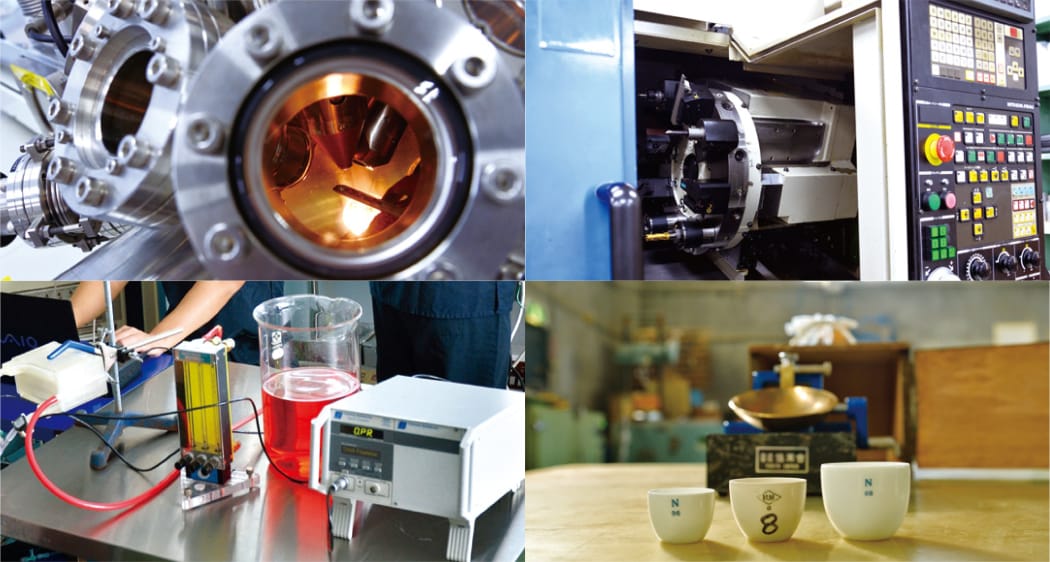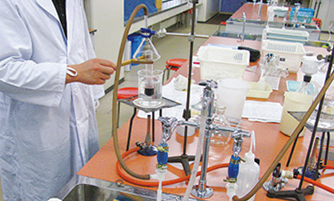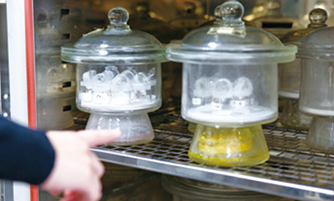School of Science and Engineering

Develops engineers with problem-solving abilities who can cope with rapid progress and the diversification of technology
The School of Science and Engineering conducts education and research activities in a practical manner within a framework encompassing five fields – science, engineering, information, life science, and environment – with the aim of developing researchers and engineers who can adjust to the rapid progress of science and technology in a dynamic society and who can be in humanity as members of society. Its basic policies provide venues where students interact with advanced research and development activities beyond the bounds of their academic majors and departments, which enhance their abilities to identify and solve problems. Students in their second year select a main course and a sub-course from among sixteen offerings in six academic categories, making it possible for them to strengthen their specialties and expand the scope of their interest to broader fields.



Science
Bachelor of Science
Focuses on a new age of science and technology
where students acquire extensive knowledge and applied skills, beginning with the foundations of mathematics and the natural sciences
As well as forging an educational system capable of teaching a broad range of applied skills while still valuing the basics, the Division also equips human resources with the creativity and expertise to perceive the essence of problems and find resolutions.
[ Courses ]
• Mathematics
• Physics
• Chemistry
• Mathematical Informatics
Life Science
Bachelor of Engineering
We aim to develop technologies that support healthy living, ranging from
regenerative medical techniques and novel therapies to functional foods
Our division seeks to foster sustainable innovations in healthcare and related fields by cultivating our students’ social and technological skills. Our division currently offers two course programs: the Environmental Biotechnology Program and the Molecular Bioscience Program. The first program primarily focuses on applied microbiology, food science, and ecology to promote a sustainable society,while the second program centers on chemistry and molecular biology related to pharmaceutical and regenerative medicine. We integrate our educational and research activities, collaborating with both industry and public institutions, to ensure our students can adapt to evolving social and technological landscapes.
[ Courses ]
• Molecular Bioscience
• Environmental Biotechnology
Information Systems and Design
Bachelor of Informatics
Produces engineers to be well-versed in information technology and social science, and explores the comprehensive informatics that are the foundation for computer technology
The division provides informatics specialists with expert knowledge and practical skills as they learn about informatics, which comprises several different areas.
Including: Information, Network, Virtual reality, Artificial intelligence, Computer system, Modern society, Digital music, Ergonomics and Human Factors, Design Thinking, Information Design and Creative expression.
[ Courses ]
• Computing and Software
• Information Systems
• Intelligent Information Design
• Amusement Design
Mechanical Engineering
Bachelor of Engineering
Educates engineers who can adapt highly specialized technologies and cutting-edge engineering
Aiming to train skills required for mechanical engineers, the course provides a basic curriculum of material mechanics, mechanical dynamics, fluid dynamics and thermodynamics. The emphasis of the education is placed to understand the fundamentals and advance expertise on analysis, design, manufacture and control of mechanical devices.
[ Courses ]
• Design and Analysis
• Manufacture and Control
Electronic Information and Biomedical Engineering
Bachelor of Engineering
Fosters human-friendly system engineers through education and research on electronics, computer and biomedical technology.
With the social needs on talents with skill and knowledge of system engineering to enhance the electrical and healthcare industries and society, this program provides a well-balanced portfolio of computer and biomedical engineering. This program emphasizes the education, research, and development of applied electronics, computer and information system technologies by acquiring knowledge on electric and electronic engineering, electronic device & material, computer control, physiology and biomedical engineering.
[ Courses ]
• Electronic and Computer Engineering
• Electronic Systems Engineering
Architectural, Civil and Environmental Engineering
Bachelor of Engineering
Develops engineers who can contribute to building a sustainable society of the future
This program trains engineers in architecture, civil engineering, and environmental and city planning, with an emphasis on developing engineers who can contribute to building a sustainable society. Students learn about construction technologies, acquire expertise in environmental protection and environmental forecasting, and learn about the information technologies that support an advanced information society.
[ Courses ]
• Architecture
• Civil and Environmental Engineering
Related content
- Undergraduate Schools
- School of System Design and Technology
- School of Science and Technology for Future Life
- School of Engineering
- School of Science and Engineering
- Graduate Schools Overview
- Graduate School of System Design and Technology
- Graduate School of Engineering
- Graduate School of Science and Engineering
- Graduate School of Science and Technology for Future Life
- Graduate School of Advanced Science and Technology
- International Program(Doctoral Course)